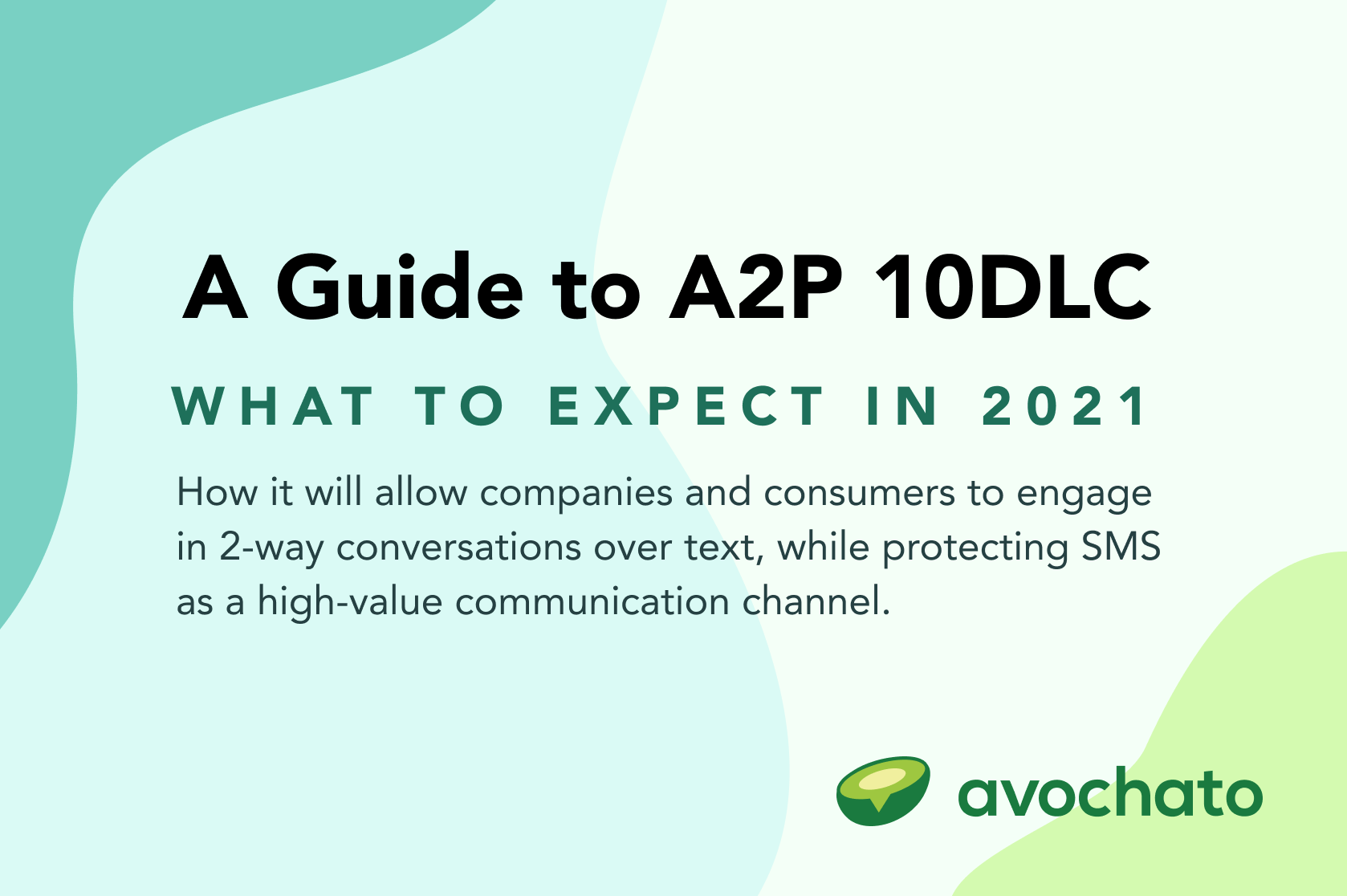
In early 2020, Verizon became the first carrier to launch A2P 10-digit long code (10DLC) service for SMS & MMS. This was an important step in the direction of better, more reliable, and more respectful communication between businesses and end customers.
At Avochato, we’ve always been very passionate about promoting dialogue between brands and their customers - and 78% of them already say they’d like to have text conversations with brands.
We believe the transition to A2P 10DLC will allow companies and consumers to continue engaging in valuable 2-way conversations over text, while protecting SMS as a safe, effective, and high-value communication channel. That’s why we’re really excited and optimistic about the impact it can have on the industry as a whole.
Put simply, these changes will mean that companies who engage in responsible texting practices will be able to better reach their customers more consistently, while consumers will feel safer from phishing and other bad texting experiences.
In this post, we’ll cover the basics of A2P, what to expect in 2021, and how to be prepared for the upcoming changes in this space.
What is A2P?
A2P (application-to-person) messaging is defined as communication between consumers and non-consumers. It may include things like marketing messages, appointment reminders, and order updates, among others.
Why is A2P 10DLC important?
A2P 10DLC routes matter because it’s a way to improve deliverability and throughput for trusted businesses and at the same time protect end users from receiving spam. Brands that are approved to use these new routes can communicate with customers at scale and benefit from better stability and delivery, without having to worry about their messages getting filtered or blocked. Brands who don’t get approved, though - usually the ones who are spamming customers and sending unwanted messages - are quickly identified and banned by carriers.
In Twilio’s words: “Think about it as the carpool lane for A2P traffic only; the bad drivers are pulled over and taken off the road.”
Upcoming changes
The biggest change to prepare for in 2021 when it comes to A2P is that shared short codes will be fully deprecated by June 1st 2021. Companies that are currently using them will need to move to dedicated short codes, toll-free numbers, or A2P 10DLC before that date.
The good news is that other carriers - including AT&T and T-Mobile - are already following Verizon’s steps and creating A2P 10DLC routes.
Avochato doesn’t use shared short codes, so if you are a customer of ours, rest assured that the shared short code ban does not apply to you. If you are not a customer and are currently using a shared short code, contact us and we can help get you setup.
How does that affect me?
Brands currently using text messaging services will notice changes in three main areas:
Additional fees
A2P 10DLC routes come with additional fees, which are put in place precisely to create another barrier to entry for non-compliant businesses. We’ll talk more about what those fees are in the section below. You can also consult our FAQ article.
Better deliverability
Companies that follow the requirements for A2P 10DLC will likely see less filtering of their messages, while the ones that don’t will be more heavily filtered. Again, this is meant to reward brands that are sending messages that end customers want to receive and penalize the ones that are not.
Higher throughput
Additional throughput will be available to companies, but there is still no official decision on what that will look like.
What do I need to do to get on A2P 10DLC?
Companies that want to get on A2P 10DLC will need to go through a two-step registration process, which allows carriers to better understand who these businesses are and what types of messages they are sending to customers:
- Brand registration: provides information about the brands that want to send messages over A2P 10DLC routes. Each brand will be assigned a Trust Score, which will help dictate their throughput. Brand registrations are expected to have a $4 one-time fee.
- Campaign registration: provides information for each campaign that a brand plans to send, including use case, description, and sample messages. Campaign registrations are expected to have a $5 - $10 fee per month.
There’s an expectation that the registration process will become more widely adopted in the future, as it does help protect the quality of messages sent.
Avochato is rolling out a process to help you register your business with carriers for sending A2P traffic. Stay tuned for more information!



